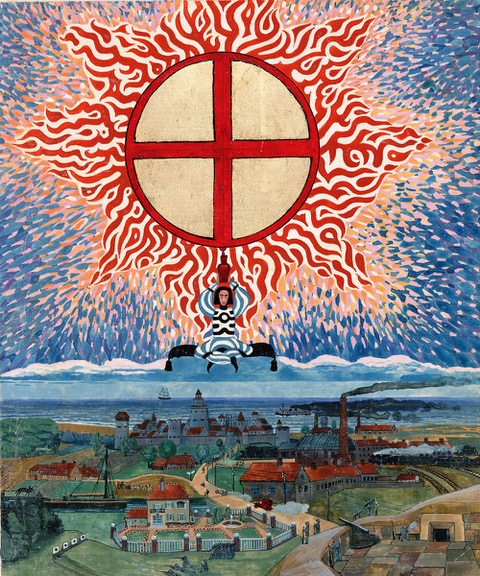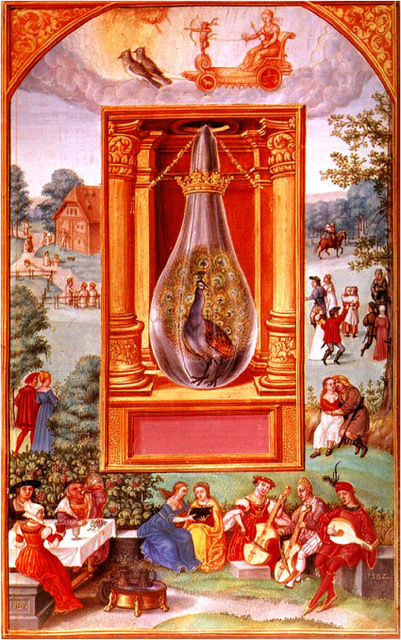Analyst Training

*** We will begin a hybrid online and in-person class format in the fall of 2024 ***
The C. G. Jung Study Center of Southern California prepares experienced, licensed clinicians and interns to become certified as Jungian Analysts through an in-depth understanding of the theory and practice of Analytical Psychology grounded in personal analysis and clinical consultation.
Initially developed by C. G. Jung, Analytical Psychology focuses on the complexity of the human psyche and the life-long development of the Self in dialogue with the personal and collective aspects of the unconscious. The theory and practice of Analytical Psychology makes use of symbolic material from the unconscious to deepen the individual's sense of purpose; as well, it addresses the psychological function of religious or spiritual experience. This therapeutic model focuses on the mutually transformative nature of the analytic relationship.
The C.G. Jung Study Center of Southern California is accredited by the International Association of Analytical Psychology (www.iaap.org) in Zurich, Switzerland, and offers a Diploma in Analytical Psychology, which certifies individuals upon graduation as IAAP Certified Jungian Analysts. Our student body reflects the broad diversity of Southern California.
OVERVIEW OF CURRICULUM
The Curriculum is organized thematically around the reading of Jung's seminal writings as well as those of Marie Louise von Franz, Edward Edinger, Barbara Hannah, Esther Harding, and Erich Neumann. Courses in Jungian theory and practice are likewise organized around major themes that include the structure and complexity of the psyche, mythic archetypal patterns, and the capacity to work with the symbolic meaning of dreams.
There are three phases to the Training Program. Each phase can be completed in approximately two years as follows:
Phase I
Weekly personal analysis with a Jungian Analyst of the Study Center.
Completion of a basic curriculum as follows:
Classes meet at the Study Center seminar rooms bi-weekly over the course of 16 weeks in the two semesters of a training year. Typically, a student will begin class on the first and third Saturday of each month. We encourage respectful dialogue, uncompromising loyalty to the facts of the psyche, and an atmosphere in which Jung's works and those closest to him can be studied at depth.
Basic courses focus on Jung's Collected Works – in particular, Vol. 5 (Symbols of Transformation), Vol. 6 (Psychological Types), Vol. 7 (Two Essays on Analytical Psychology), and Vol. 8 (The Structure and Dynamics of the Psyche). We further explore archetypal themes through the symbolic riches of Greek mythology, folklore, and contemporary cinema.
Each semester features a Practice and Theory course to develop each candidate's clinical skills, i.e., how to work with clients from a Jungian point of view. This reminds us that Analytical Psychology is not just a point of view but a method for healing.
Phase II
- Weekly personal analysis with a Jungian Analyst of the Study Center.
- Completion of an advanced curriculum.
Bi-weekly private case supervision paid for by the student at an approximate cost of $2,500.00 per year. This is paid to the supervising analyst and is not included in the tuition.
Classes again meet at the Study Center every other Saturday during the semester. But now the focus is upon the more difficult Collected Works of Jung – such as Vol. 9i (Archetypes of the Collective Unconscious), Vol. 11 (Psychology and Religion), Vol. 12 (Psychology and Alchemy), and Vol. 16 (The Practice of Psychotherapy).
A grasp of the psychological meaning of alchemy is essential at this stage along with a proper understanding of transference and counter-transference. How to work with dreams, understanding active imagination, and when to encourage it with clients, are all explored as the student's own psychological development deepens. Special seminars on the psychological meaning of Christian Mysticism, Hinduism, and Buddhism may also be offered at this stage.
Each semester features, as before, a Practice and Theory course to help candidates develop their clinical skills within a Jungian context.
Phase III - Control Phase
- Weekly personal analysis with a Jungian Analyst of the Study Center.
- Weekly meetings with a Study Center Jungian Analyst - different from one's personal analyst - called the Control Analyst. This analyst supervises one case that seems particularly promising, known as the Control Analysis. At some point the student is required to work with a second Control Analyst to gain perspective. The student is no longer required to take courses but is required to attend selected advanced seminars.
- Writing a Control Case Paper of approximately 60 pages in length on the Control Case analytic experience. Specific guidelines for the structure and content of this paper will be provided.
- Defense of the Control Case Paper before a Certifying Committee composed of three Study Center analysts who may decide to recommend the student for certification as a Jungian Analyst.
- Ratification of the Certifying Committee's recommendation by the Study Center analyst members. The newly certified Jungian Analyst is then recommended to the IAAP for membership in the international community of Jungian Analysts.
THE PROCESS OF ANALYTIC TRAINING
The Process of Analytic Training is both educational and transformational. It frequently leads to significant personal development by deepening one's relationship to the unconscious. Our program fosters mutual
development and psychological awareness within an intimate learning community of candidates and analysts. Upon graduation, candidates have an appreciation of the symbolic attitude within the dynamic field of analysis and a working understanding of transference and counter-transference within the analytic relationship.

